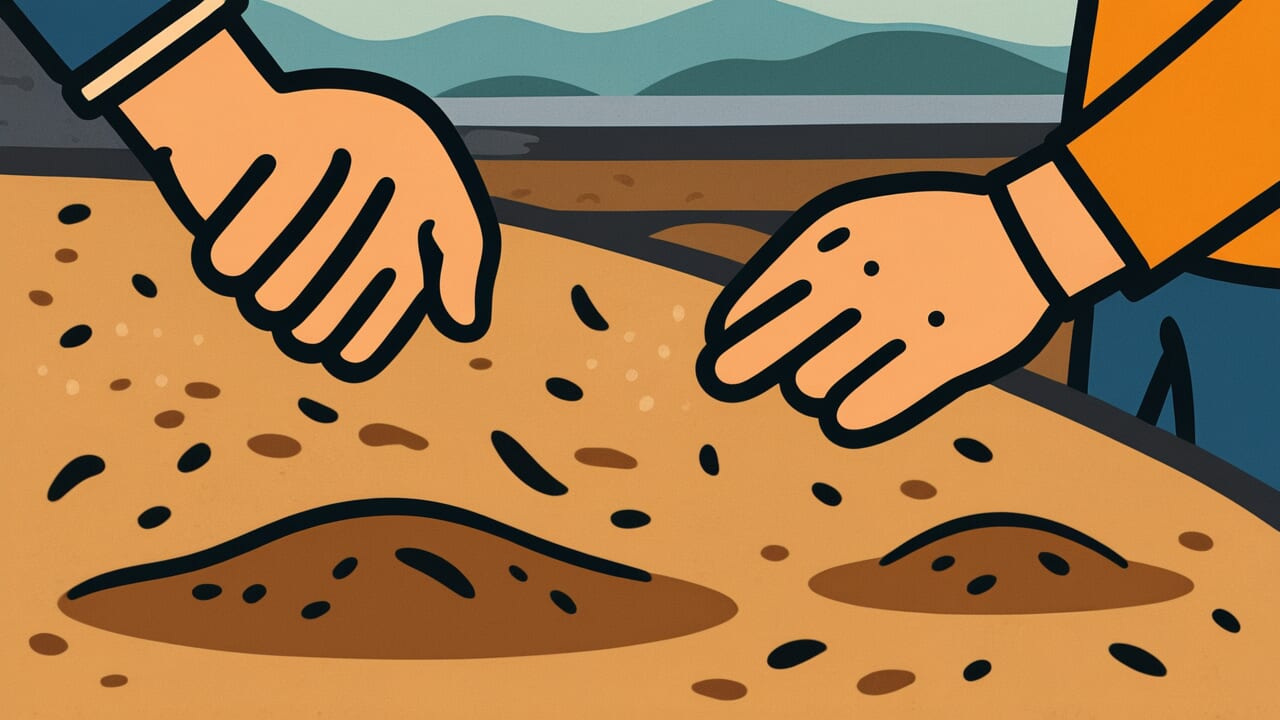How to Read “Other people’s dirt doesn’t stick to you”
Hito aka wa mi ni tsukanu
Meaning of “Other people’s dirt doesn’t stick to you”
“Other people’s dirt doesn’t stick to you” means that things you take from others through dishonest means won’t truly become yours and will eventually slip away.
Wealth or benefits gained through theft, fraud, or other wrong methods may be in your hands temporarily. But they won’t last long and will ultimately be lost.
This proverb serves as a warning to people considering dishonest actions. It’s also used when someone who gained benefits dishonestly later falls from grace.
People might say, “See, other people’s dirt didn’t stick to them after all.”
This teaching still applies fully in modern society. Status or wealth gained through dishonest means often gets discovered or becomes a burden on your conscience.
In the end, you lose it. This proverb teaches a universal life truth: only what you earn through honest effort truly becomes yours.
Origin and Etymology
No clear written records explain the origin of this proverb. However, we can make interesting observations from how the words are structured.
First, notice the term “hito aka” (other people’s dirt). “Aka” originally means dirt that sticks to the body.
Here it’s used metaphorically to mean “things dishonestly obtained from others.” Things you didn’t earn through your own effort but took from others are like dirt on your body.
They’re not truly yours.
The expression “mi ni tsukanu” (doesn’t stick to you) is also meaningful. We say skills or knowledge “stick to you” when you truly master them.
Conversely, things gained dishonestly never truly become yours. They will eventually leave you.
This expression likely emerged from traditional Japanese ethics. Our ancestors understood a life truth: only what you earn through honest work becomes true wealth.
Things gained through dishonest means may be in your hands temporarily, but they will eventually be lost. The proverb cleverly uses the everyday image of bodily dirt to convey a moral lesson clearly.
Usage Examples
- That company president made his fortune through fraud, but his business eventually collapsed. This is exactly what “other people’s dirt doesn’t stick to you” means
- Even if you live luxuriously with embezzled money, other people’s dirt doesn’t stick to you, so you’ll definitely get caught and lose it someday
Universal Wisdom
The proverb “Other people’s dirt doesn’t stick to you” has been passed down through generations because it addresses the eternal conflict between human desire and conscience.
Everyone sometimes feels tempted to gain benefits the easy way. When a dishonest shortcut appears before us, our hearts waver for a moment.
That’s human nature.
But at the same time, people have an inner voice called conscience. When you obtain something dishonestly, somewhere in your heart you feel guilt and lose your peace of mind.
This proverb shows the difference between material possession and spiritual possession. Things gained dishonestly may physically be in your hands, but you can’t truly enjoy them as “yours.”
You’re constantly tormented by fear of discovery, pangs of conscience, and suspicion of those around you. That can’t truly be called “sticking to you.”
Our ancestors keenly understood this psychological mechanism. People can only find peace of mind by living honestly.
Only with that peace can you truly enjoy what you’ve gained. Dishonesty always corrodes the heart and eventually manifests as external loss too.
This is wisdom rooted in human nature that doesn’t change with the times.
When AI Hears This
Human immune cells discover and eliminate thousands of cancer cells daily. Strangely, they never attack their own normal cells.
This identification system is called “self-tolerance” and forms during fetal development. Things present in the body from the beginning are recognized as “self.”
Only things that invade later get eliminated as “enemies.”
This principle remarkably resembles how criticism from others doesn’t stick in our hearts. Just as the immune system recognizes MHC molecules on cell surfaces as “passwords,” our minds only accept insights born from within ourselves as genuine.
Other people’s words slide off the surface, but conclusions we reach through our own thinking take deep root. This is a psychological immune response to external information.
Even more interesting is that the immune system needs an “education period.” T cells receive training in an organ called the thymus.
Those that attack self are eliminated. Similarly, humans establish their own values during growth and acquire psychological filters that automatically reject external evaluations contradicting them.
The ineffectiveness of others’ criticism isn’t coldness but a biologically inevitable system protecting self-identity. This dual defense mechanism protects us both physically and mentally.
Lessons for Today
This proverb teaches us who live in modern times that “honesty is the most reliable investment.”
Modern society is highly competitive. You might be tempted to look for shortcuts.
But this proverb speaks quietly yet powerfully. Things gained through dishonest methods will burden your heart and will surely be lost someday.
What matters is not being swayed by immediate benefits but maintaining a long-term perspective. What you gain through honest effort is certainly yours, even if it’s small.
It sticks to you as skill, as experience, as trust. These become your own wealth that no one can take away.
Today, if you face dishonest temptation, remember this proverb. Is temporary benefit worth losing the trust and peace of mind you’ve built over years?
Living honestly may sometimes seem like a detour. But that’s the sure path to true richness.
Your integrity will surely protect you.



Comments